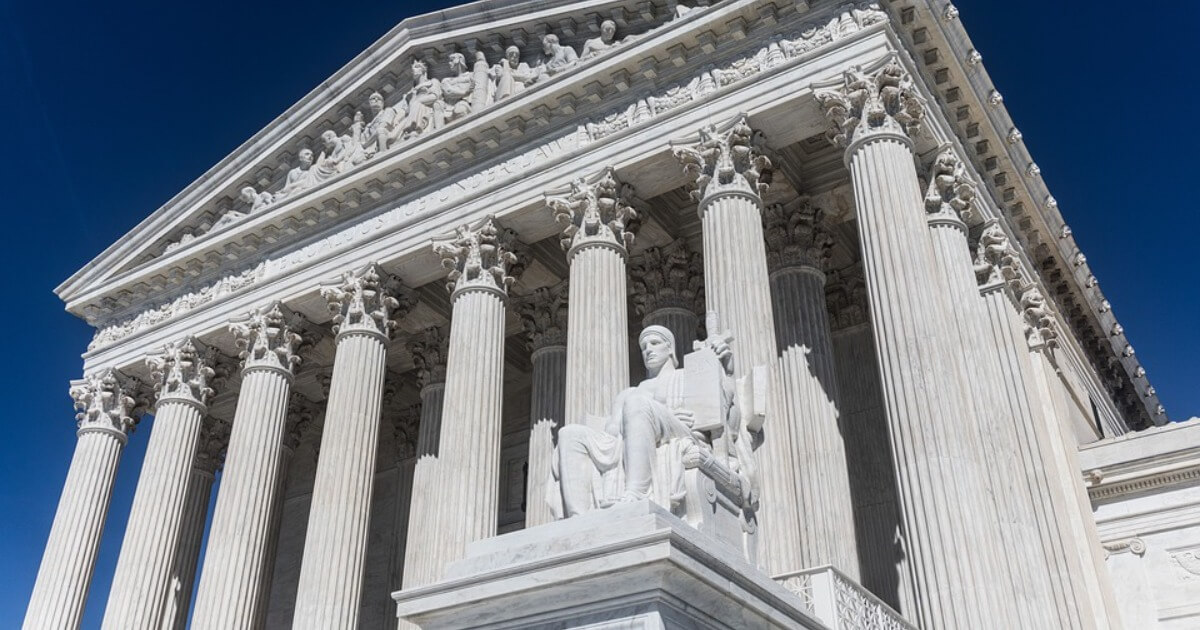Donald Trump Vs. the U.S. Constitution
The U.S. Supreme Court’s responsibility in light of Trump’s many transgressions is an occasion to invoke the dictum “the Constitution is not a suicide pact.”
February 6, 2024

A Strategic Assessment Memo (SAM) from the Global Ideas Center
You may quote from this text, provided you mention the name of the author and reference it as a new Strategic Assessment Memo (SAM) published by the Global Ideas Center in Berlin on The Globalist.
As the U.S. Supreme Court ponders challenges to Donald Trump’s qualifications to run again for President of the United States, the reality is unprecedented in more than one respect.
At the most basic level, the court has never confronted a candidate whose campaign directly challenges the U.S. Constitution itself.
Trump’s imperious claim of total immunity
The issues go beyond the matter of Trump’s culpability for the January 6th, 2021 assault on the U.S. Capitol. They also go beyond his non-credible protest of innocence for mobilizing and inciting the mob that violated the Capitol and threatened the lives of his own vice president and others.
And they go beyond his imperious claim of total immunity for any actions taken while he was president — and his expectation that he could exploit such immunity even more egregiously in a second term. They finally go beyond the absurd claim that he never took an oath to support the Constitution.
Pressing questions for Trump
In fact, the urgency of the cases Trump’s candidacy presents to the court stems less from his past behavior than from his declared intentions for the future. The list of questions Trump’s attitude raises is long:
1. Has any previous candidate asserted that even the limits of the U.S. Constitution must sometimes be exceeded?
2. Has any of his predecessors in the Oval Office ever described people convicted of crimes that jeopardized the Constitutional order as “hostages”?
3. And has any President promised, if elected, to pardon such criminals?
4. Furthermore, has any campaigner rallied his supporters by demanding that the incumbent president free those found guilty of violence against the peaceful transition of Constitutional authority?
Nothing but contempt for the Constitution
Those questions weigh heavily on the Supreme Court deliberations regarding Colorado’s verdict that Trump is disqualified from running for office. In his current campaign, Trump’s rhetoric and pledges confirm his contempt for the 14th amendment.
By continuing to portray as “hostages” those found guilty of anti-Constitutional violence on that dreadful January 6, 2021, Trump violates the 14th amendment’s disqualification standard.
Aiding the enemies of the U.S. Constitution
Section 3 is precise: It disqualifies a person who, having taken an oath to support the U.S. Constitution, gives “aid or comfort to the enemies thereof.”
It cannot be disputed that the hundreds of people convicted of action to disrupt the legislative vote-counting procedures in 2021 acted as “enemies” of the Constitution. Nor can it be disputed that Trump’s plan to pardon such individuals gives aid and comfort to them.
No Fifth Amendment privilege against self-incrimination
There is no Fifth Amendment privilege against self-incrimination in a public campaign speech. Exhorting his followers, he confesses to his anti-constitutional offense. Trump has thus convicted himself by his own language.
The burden now descending on the Supreme Court is grave. In previous cases of presidential misconduct, Congress has often disciplined the executive.
Remember the Nixon, Reagan and Clinton cases?
It was impending impeachment over the Watergate affair that triggered Richard Nixon’s resignation, with the Supreme Court playing a supporting role by forcing the administration to release critical evidence for legislative consideration.
Similarly, disclosure of the Iran-Contra debacle eventually forced an embarrassed Ronald Reagan to admit that his administration had traded arms for hostages. It also brought criminal prosecutions of several officials.
And it was Congress that unveiled Bill Clinton’s shabby affair with a White House intern. That was not a Constitutional abuse, but a personal peccadillo that cost him dearly in reputation.
When Congress fails…
The failure of Congress to discipline Trump is disheartening, though its attempts at impeachment are notable. Senator Mitt Romney reports that after the House impeached Trump in 2021, Republican leader Mitch McConnell commented that “they nailed him” (a remark McConnell says he does not recall).
The Kentucky senator condemned Trump for “a disgraceful… dereliction of duty” and said he was “practically and morally responsible for provoking the events of the day.” He stressed that the former president would still be vulnerable to criminal and civil actions to hold him accountable.
However, when the roll was called, McConnell led a minority of senators – all Republicans – to evade a guilty verdict, largely on the procedural ground that Trump was no longer in office.
A pattern of supine acquiescence in Trump’s excesses
The pattern of supine acquiescence in Trump’s excesses by partisans is astonishing. Evidently, Republicans in Congress are more afraid of offending Trump‘s base than prepared to denounce his offenses against the Constitution.
Thus, it falls to the Supreme Court to protect the Constitution against Trump’s past, present and predictable perversions of our founding charter.
A court eager to find an “offramp”?
There is widespread speculation that the Court will be eager to find an “offramp,” a way to escape responsibility and leave the door open for a second Trump term.
If Trump is allowed to run and is ultimately elected, the Supreme Court will have enabled the most dangerous threat to the U.S. Constitution since the Civil War.
It is an occasion to invoke the dictum “the Constitution is not a suicide pact.”
Takeaways
The U.S. Supreme Court is faced with a highly unusual situation. It has never confronted a Presidential candidate whose campaign directly challenges the U.S. Constitution itself.
If Trump is allowed to run and is ultimately elected, the Supreme Court will have enabled the most dangerous threat to the U.S. Constitution since the Civil War.
Trump violates the 14th Amendment’s disqualification standard. It disqualifies a person who, having taken an oath to support the U.S. Constitution, gives “aid or comfort to the enemies thereof.”
Trump's plan to pardon individuals who received a guilty verdict for the January 6th, 2021 assault on the U.S. Capitol gives aid and comfort to “enemies” of the U.S. Constitution.
There is no Fifth Amendment privilege against self-incrimination in a public campaign speech. By exhorting his followers, Trump confesses to his anti-constitutional offense.
A Strategic Assessment Memo (SAM) from the Global Ideas Center
You may quote from this text, provided you mention the name of the author and reference it as a new Strategic Assessment Memo (SAM) published by the Global Ideas Center in Berlin on The Globalist.


